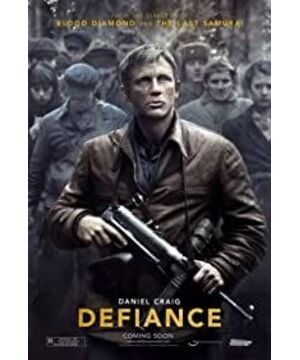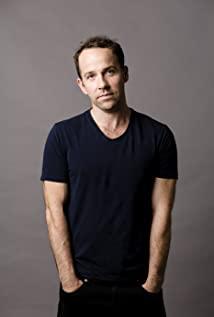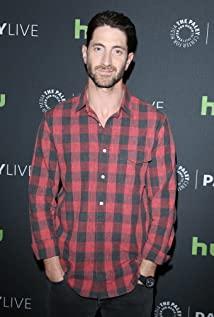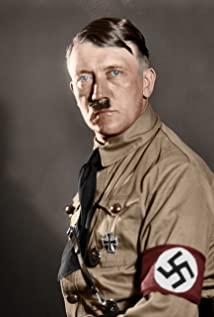Therefore, it is always a fool's joke to repay the fountain. Charity is just a trivial transaction in the weak.
Before discussing Edward Zwick’s "Rebel", I would like to mention the Japanese 09 anime "Hetalia" a little bit. It satirizes the United States as a superman who wears panties and wants to be a superman to protect the earth against the greenhouse effect. Although this irony is not painful or itchy, it is indeed what I want to say before discussing the rebels: the strong always feel that they are the center of the solar system, and the so-called weak are just passers-by for them to comfort their conscience. .
As the most bitterly displaced race in the world, the Jews are one of the objects of the strong Buddha's light. (Such objects include women, blacks, North Koreans, AIDS patients, and Chinese migrant workers.) It is always on the side of the lamb to be slaughtered. American writers and filmmakers mentioned the subject of Jews, especially the subject of Jews during World War II. Immediately a hungry wolf looks like. This makes it hard for me not to start Maugham's "Moon and Sixpence": sympathizing with them is like milk to cows, and I wish to squeeze it out right away.
And this kind of cheeks are played to the extreme in Schindler's list. Although Schindler is not an American, the long list cannot hide the superhuman arrogance of the United States behind it. As the direct victims of World War II, the Jews almost disappeared in this war, disappearing behind the veil of the weak. In a word, the Jewish national spirit is not taken seriously.
Edward Zwick’s "Resistance Army" is definitely not a classic on the theme of World War II and the Jews. However, it will be engraved in the history of movies on this subject. After being fed up with the heroic tragedy of Private Ryan, we finally woke up. It turns out that Jews also existed in that dark history. Although they are a weak person, they are human beings after all, the opponents of their cursed fate.
"The Resistance Army" is adapted from a novel, and the novel is based on historical facts. However, I feel that if the Bielsky brothers really resisted, the biggest enemy of their resistance was not the Nazis, but themselves and human beings. In the film, Tuvia played by Daniel Craig gave a heroic speech similar to "Brave Heart". One sentence was:
"We may be hunted like animals, but we will never become Animals are at the mercy of humans."
This sentence is not as magnificent as Wallace's period, but all the introductions about "Rebel" mentioned this sentence more or less. As a center, it is the main object that Tuvia and the others, who live in the deep forest and avoid the darkness, fight against. What they want to resist is the loss of human nature and how to defend the dignity of the soul. For this theme, the Japanese anime "Great Sword" puts it even more moving: I will die as a human being.
As the entity of this kind of resistance, the Nazis did not have enough ink in "Resistance", but it is not necessary. The existence of the Nazis is entirely to promote the development of the plot of this movie. This kind of existence is the same as the witch in "Blair Witch", but it shows a kind of existence. They forced the Jews into a Jedi, then retreated behind the scenes, and then let nature and humanity destroy this group of wanderers.
This is the Resistance Army.
The biggest enemy is always oneself. The reason why mankind is struggling in the vortex of degeneration is largely because he is a mankind.
Compared with movies of similar themes, "Resistance Army" is a movie with the label of war. What it describes is not about the love of children, but more about the living conditions of this group of deportees in the deep mountains and wild forests. After the whole movie, as the audience, what you feel is not the unexpected bullet in the next second. I believe my logistics teacher will really like this movie. Because it once again confirms the importance of military logistics: Tuvia and his followers are always on the go for food, clothing, and medicine. At the beginning of the movie, Tuvia's revenge more or less reflects the struggle of human nature-but in a blink of an eye, the enthusiasm for revenge fades, and dozens of mouths are left, waiting to eat-it is that Tuvia's hero is short of breath.
Maslow puts forward the five levels of human beings in the hierarchy of needs theory, breaking down the nature of human beings sharply: if you don't have enough to eat or wear, everything else is in vain. Tuvia's legend is not based on how he killed the enemy and won, but on his dying struggle in the face of the collapse of human nature. In Tuvia's view, human nature is what distinguishes it from animals.
In the context of the time, incompetence in the face of violence, incompetence in the face of fate, and incompetence in the face of death, the Jews looked forward to being saved more than resistance. If Thad is right, whether it is being slaughtered or saved, it is a personal trampling for the Jews. Jews cannot even talk about human dignity, let alone the dignity of a nation. The resistance army led by Tuvia not only survived in the deep forest, but they also died with human dignity. This is a great move, a preservation of the human soul.
Tuvia is not only a hero, but he is also an idealist. The difference between greatness and humbleness is that he can always see that in addition to the flesh, there is a purer and noble soul that is worth fighting for. The human soul depends largely on the constraints of human beings, such as morality. This kind of bondage is where the soul is what Tuvia said. What Tuvia has to do is to protect the life of a normal human being, and this life is a life of fetters.
According to Thad, this is another kind of ridiculous. You know your honor and disgrace when you have enough food and clothing, and you know the etiquette when you are in a real warehouse. The combination of Chinese and Western art makes humanity so clear, then Tuvia's reversal of master and slave, in the eyes of a Machiavellianist, is just a fool who doesn't know how to work.
But for historians and artists, this is a greatness.
In the movie, Tuvia was consciously or unconsciously portrayed as the image of Moses of the Jewish nation in World War II.
According to the "Bible", God gave Moses three roles as a national liberator, a law-promulgator, and a sufferer. We can more or less find these three images in Tuvia: leading the Jews to escape from the quarantine zone, issuing decrees as a leader, and finally being questioned and betrayed by their peers. Like Moses, he is also a slightly sad hero. In the last part of the movie, Tuvia imitated Moses and led the people through a swamp—it can be seen to some extent that the metaphor is actually the Red Sea that Moses crossed.
As a tragic hero, Tuvia's tragedy does not lie in her own sacrifice. His sacrifice was not physical, but spiritual. (This is also consistent with Moses: it is said that Moses lived to be 120 years old.)
American-style tragic heroes are impressed by Wallace and Captain Miller. The end of their tragedy is the end of life. The tragedy of Tuvia is that he finally sacrificed the purest part of the human soul for human desire (appetite). The director used a symbolic metaphor in this paragraph. He loaded all the beautiful things that Tuvia and his resistance army wanted to maintain on a white horse in the movie: snow-white purity, running passion, and fairy-tale beauty.
Although Edward Zwick performed inadequately during this period, he could not express this tragedy more deeply. Whether it was the camera or the plot, it seemed very sloppy: Facing the winter famine, Tuvia led the horse to the snow. Inside, he gently stroked the tragic soul, and finally drew his gun and killed the white horse.
After all, human beings failed to protect their souls.
I swear to defend your right to speak, but I don’t believe every word you say
http://www.mipang.com/spaces/anyrain/
View more about Defiance reviews











